How to soundproof a home office – professional tips to help you work in peace
Stay focused and productive when you're working from home with expert ideas to keep your office quiet
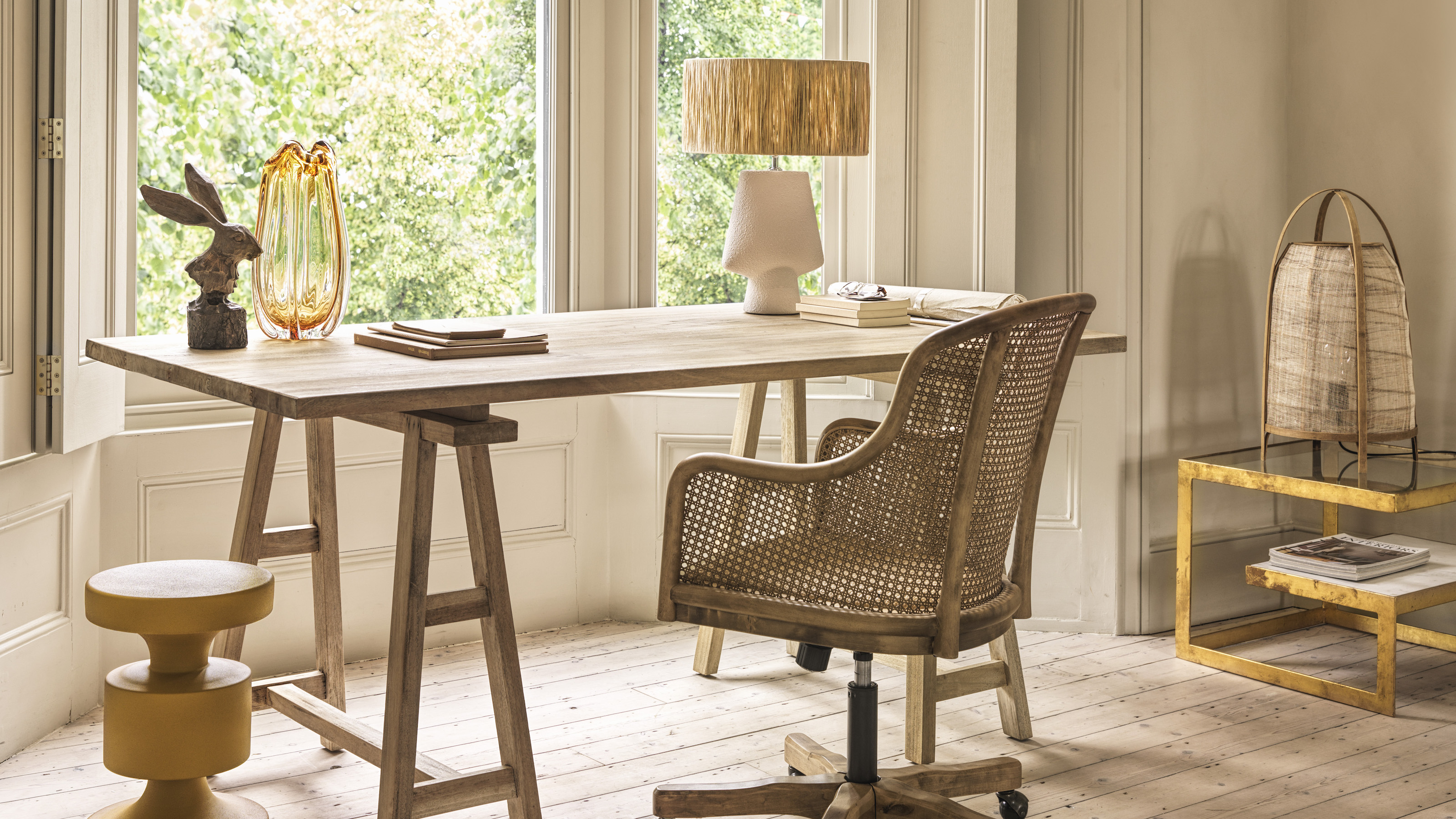
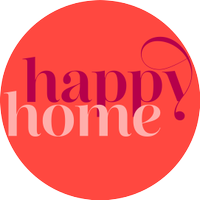

Flexible working means we're as likely to be taking Zoom calls and filling in spreadsheets from a home office, as we are going to meetings and chatting to colleagues over the coffee machine at an employer's. But how do we keep family life – and all its sounds and disturbances – from interrupting us?
While Covid saw many of us pivot to working from home more often, our desk set-ups often haven't caught up with our change in circumstances. We talked to interior designers, noise experts and researchers to find out how to soundproof a home office so you can work in peace. And just as importantly, how to stop noisy Zoom calls leaking beyond our office and disturbing the rest of the family.
When we can stay focused and productive, we can get the job done and get back to family life quicker. Ready, steady, Zoom…
Why we need quiet to work well at home
There are lots of ways noise can disturb us when we're working from home whether you have a dedicated home office or are making the most of a clever small home office idea squeezed into a cupboard. A quick poll of the idealhome.co.uk team (a mix of hybrid and remote workers) found that noisy neigbhours, family life, traffic noises, building works and the sound of the TV or radio can all interrupt us.
Researchers Dr Francesco Aletta and Dr Simone Torresin looked at the impact of historical (Covid lockdown), situational (family members and housemates) and spatial (urban areas and building structure) on productivity, concentration and mood when working from home.
'Quietness availability and the lack of intrusive noise are key for a sound environment that allows concentration and is conducive to work,' they report.
The people in their study used various coping strategies to block out unwanted noise, including closing doors and windows, turning up the TV, or using noise-cancelling headphones.
Get the Ideal Home Newsletter
Sign up to our newsletter for style and decor inspiration, house makeovers, project advice and more.
If you've already needed to soundproof a bedroom, you'll already know that sometimes these coping options don't quiet work. Fortunately, your home office decor could be your best friend in helping to create a quiet work environment. We spoke to Interior designers and experts who shared their top design solutions to soundproof our home offices and make them better places to work. They'll even look better, too. Now that's the kind of work bonus we can get behind…
1. Soundproof windows
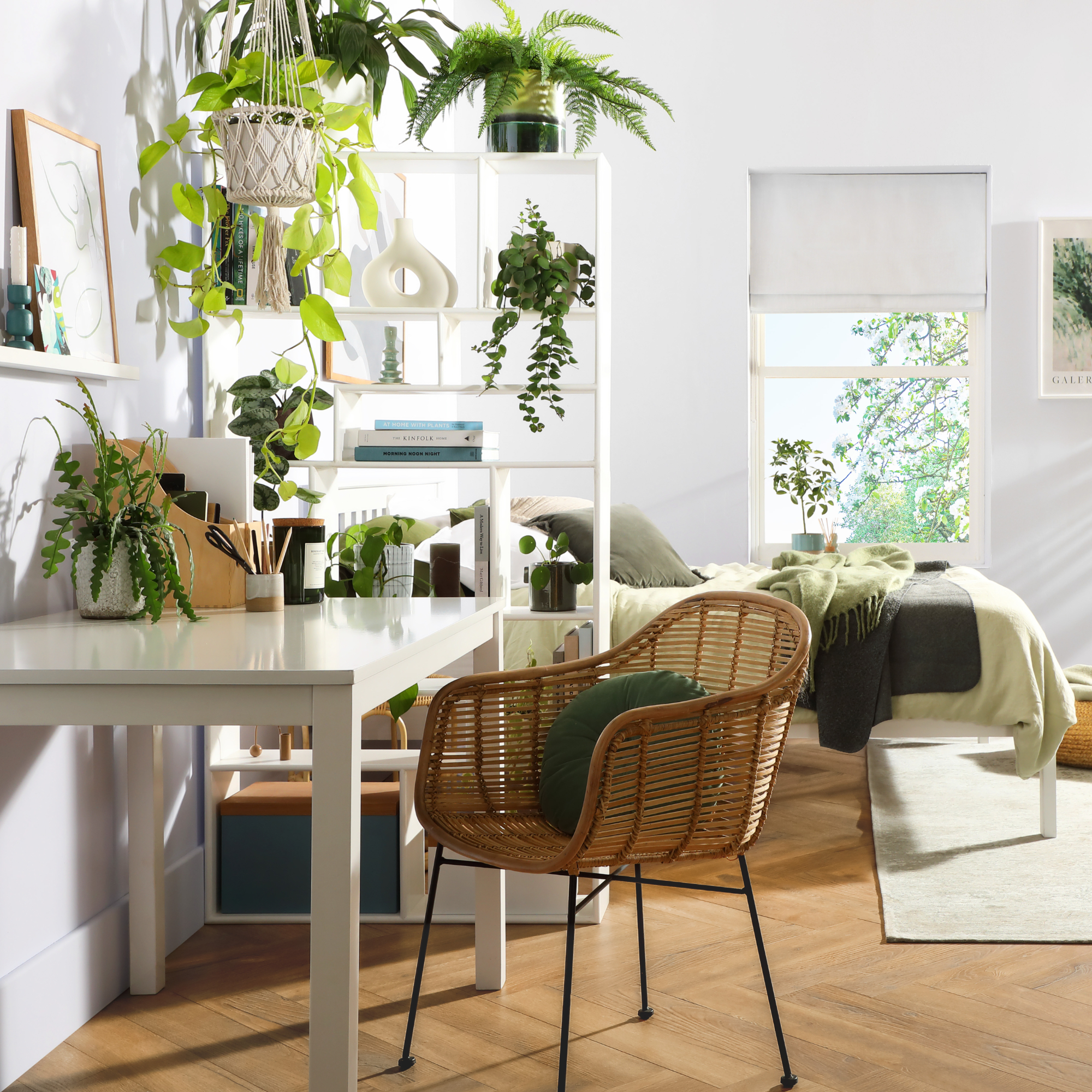
You've got up and closed the windows and shut the door, but noise from outside is still interrupting your chain of thought. Sound familiar? It may be time to upgrade your window glazing.
'Glazing and doors are key elements when trying to control unwanted noise from both inside and outside your home. Invest in window and door systems with outstanding acoustic performance for best results,' says Poppy Szkiler, CEO and founder of Quiet Mark, which tests and assesses products that reduce unwanted noise in the home.
'If your study has a window onto a noisy street then secondary glazing should definitely be considered,' suggests Lucinda Griffith, founder of Lucinda Griffith Design. 'While interlined curtains will help, they won’t make a difference in daytime working hours when they are open and the glass is leaking noise into the room.'
2. Insulate walls to block sound
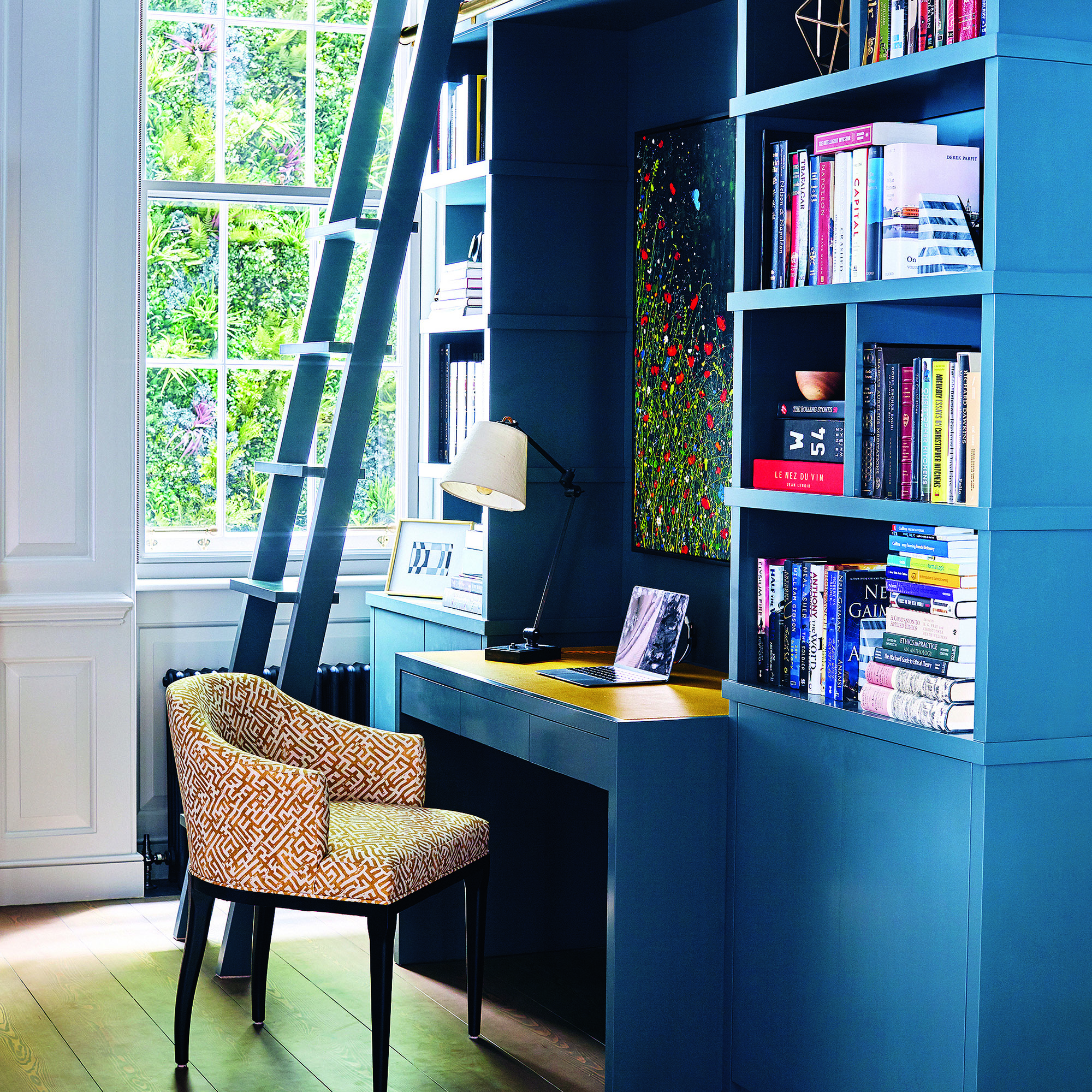
Not only does a bookcase make a great Zoom backdrop, but it can also help soundproof your home office, too. Any home office storage idea stretched over a wall will help do the trick.
'Bookcases filled with books will work as a sound barrier,' confirms interior designer Lucinda Griffith. 'A luxury option would be fabric walling, with a padded backing behind the fabric.
'If you are renovating your space, then do consider an acoustic plasterboard for your walls. This will make a huge difference in soundproofing your room from the rest of the house,' Lucinda continues.
This can be particularly useful if your home office is next to a busy area of your home, like the kitchen, or a high-traffic area such as the hallway
'To ensure minimal disruption if your home office is located next to a high-activity area such as a living room, you might need to consider adding extra layers of plasterboard, acoustic studs and mineral wool insulation on internal and separating walls and floors,' says Poppy Szkiler from Quiet Mark.
3. Soften the sound from hard floors
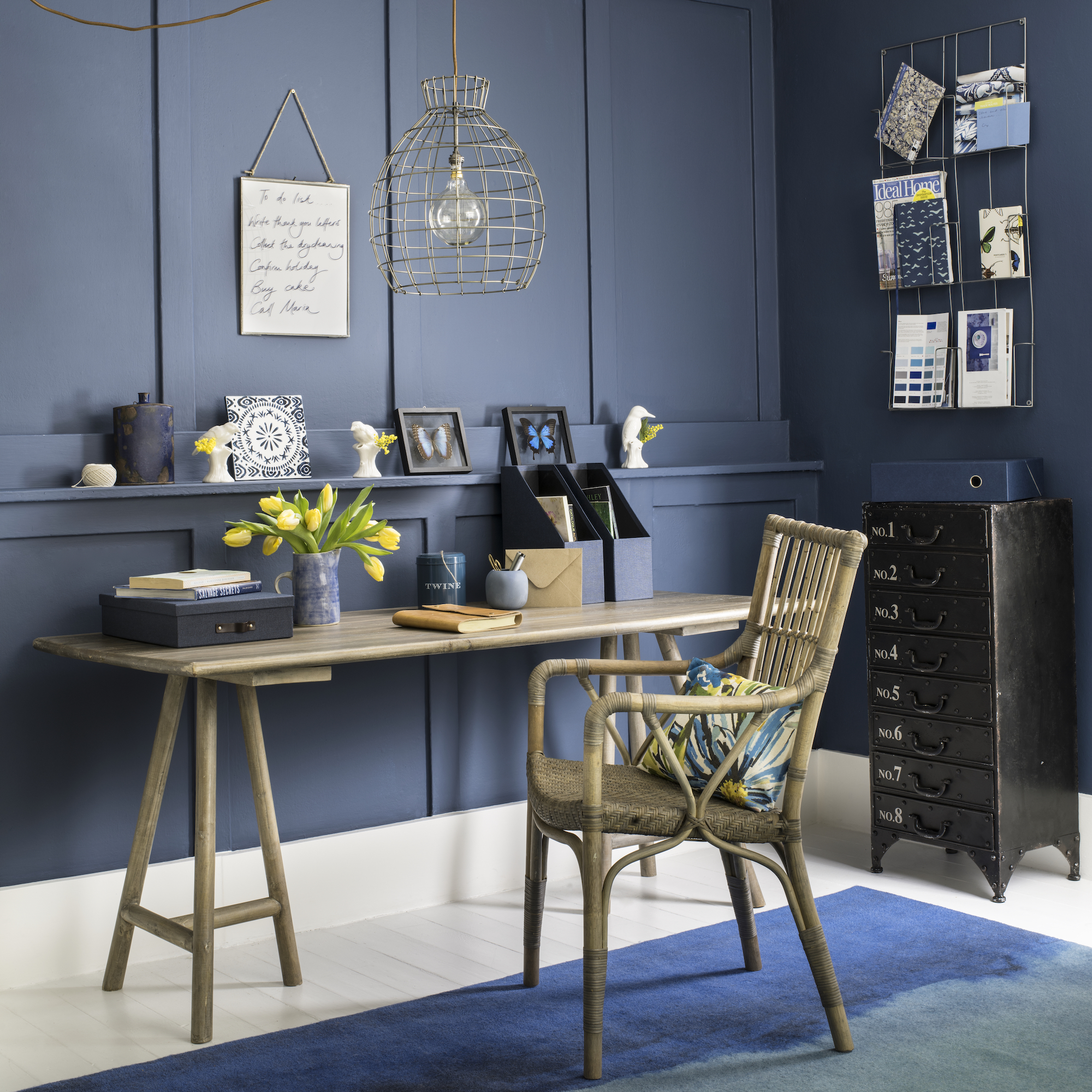
Ever wondered why your voice sounds croaky after a long day of Zoom calls at home? 'Hard surfaces such as tiled flooring, large expanses of painted plasterboard and windows can cause reverberation, which is when sound is amplified as it reflects back into the room. This can reduce our ability to hold conversations and increases vocal strain,' explains Poppy Szkiler.
'Sound-absorbing finishes can help create a more calming home environment. This can come in the form of rugs, fabric wall hangings and carpets, which can help reduce reverberation, especially when combined,' Poppy says.
'I'd avoid a hard floor surface in a home office but go for a carpet on underlay to help absorb sound instead,' says Lucinda Griffith.
4. Close the gap under doors
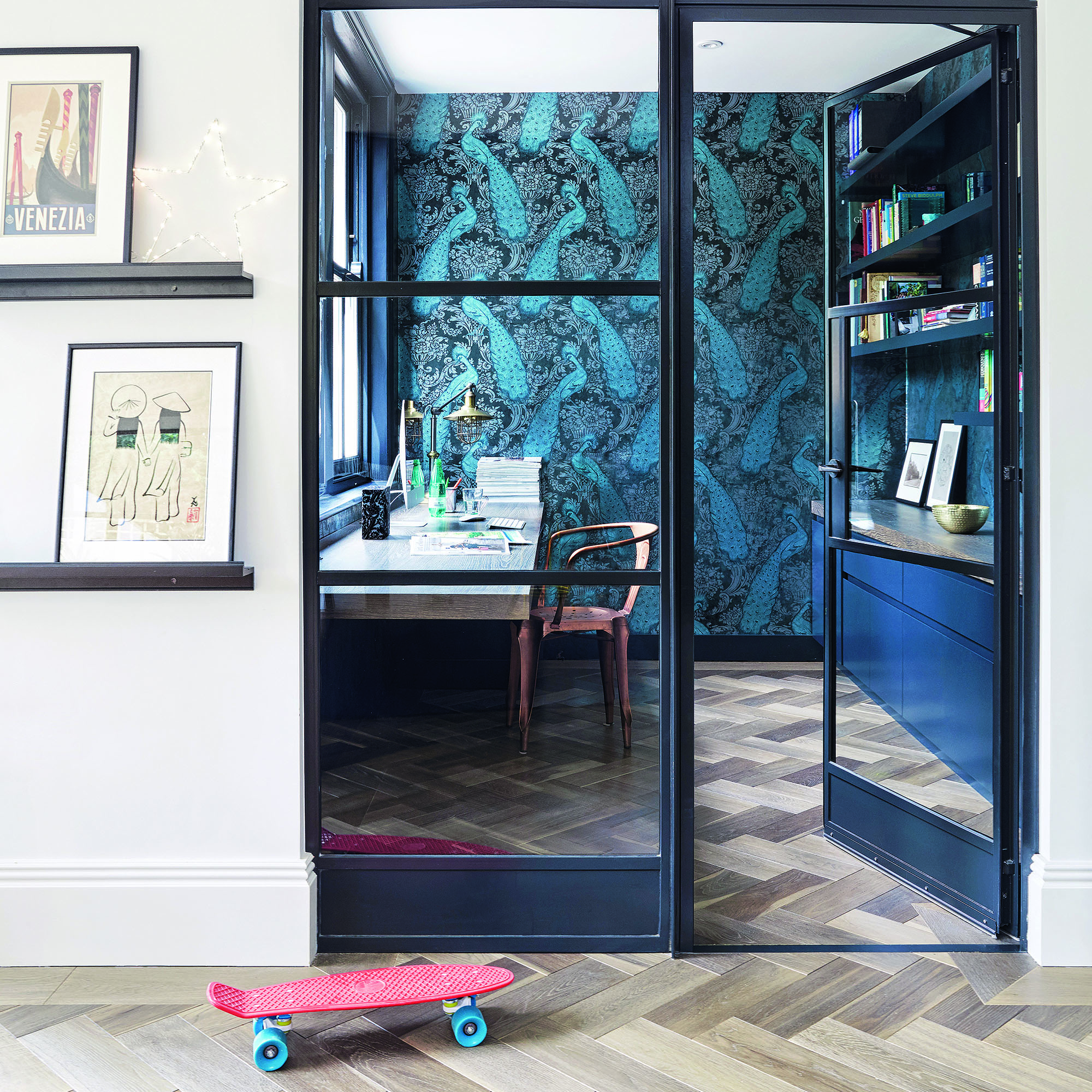
Sound leaking in and out of a home office from the gap around a door is a common problem. The easiest fix is to install a strip of stick-on foam insulator around the door frame, available at Amazon, in the same that you would tackle fixing a draughty door.
'Assuming your door is a solid one (a must if soundproofing) then look at the fit of the door in it’s frame,' advises Lucinda Griffith. 'Adding a draught sealant around the edges will not only help the heating bill, but also muffle any noise creeping in through those gaps.'
For extra glam, why not cover the inside of the door with insulating wadding, covered in fabric, held in place with studs? This will give your office a private members' club vibe, while reducing sound infiltrating into the space.
5. Invest in quiet electrical equipment
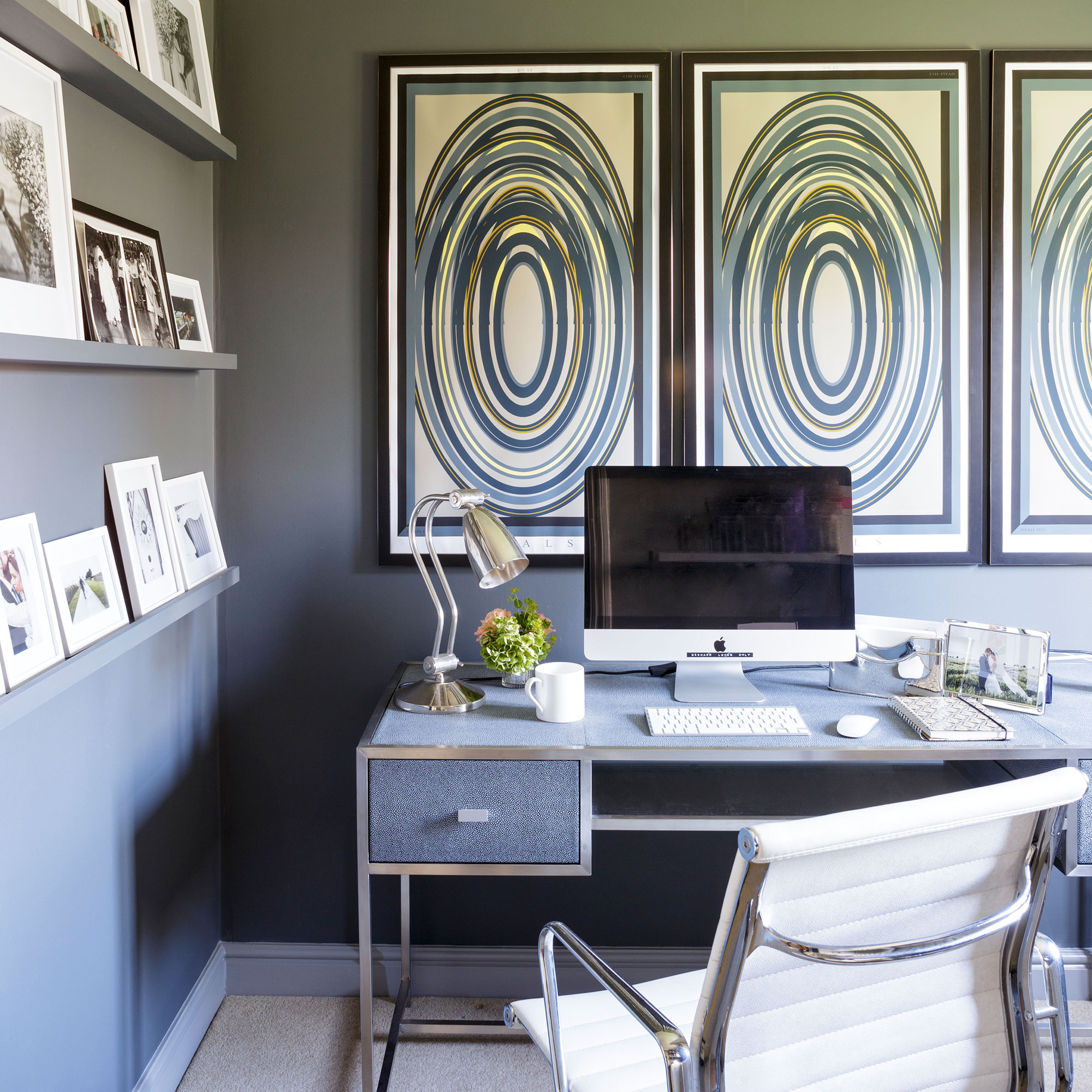
The noise of fans, computers, heaters, printers and any other electricals will create the 'soundscape' of your home office. The louder the background noise, the more the volume needs to be turned up in other areas, such as the volume of phone and video calls.
'Now that remote working has become the new normal for many of us, we need to ensure our working environment is efficient and effective – a place that lets us be our best work selves,' says Poppy Szkiler from Quiet Mark. The organisation has an online directory, which provides an overview of the quietest appliances currently available, including desk fans, acoustic office furniture, flooring, blinds and acoustic wall coverings.
'When Quiet Mark tests or verifies home appliances, we take into consideration a variety of factors including sound quality. The way a product sounds can either enhance or disrupt your space,' Poppy explains. 'Two appliances could have the same decibel level, but one could have an annoying rattling sound, in which case, we’d exclude it.'
Walls, floors, doors and windows sorted, soft rugs and curtains in place, and quiet gadgets plugged in. It's time to get to work.

Andrea began her journalism career at Ideal Home and is currently Editor of our sister title, Country Homes & Interiors, which celebrates modern country style. Andrea is passionate about colour and how it can transform both our homes and our sense of wellbeing, and has completed The Power of Colour course with the prestigious KLC School of Design. Andrea's career spans interiors magazines, women's lifestyle titles and newspapers. After her first job at Ideal Home, she moved on to women's magazines, Options and Frank. From there it was on to the launch of Red magazine, where she stayed for 10 years and became Assistant Editor. She then shifted into freelancing, and spent 14 years writing for everyone from The Telegraph to The Sunday Times, Livingetc, Stylist and Woman & Home. She was then offered the job as Editor of Country Homes & Interiors, and now combines that role with writing for idealhome.co.uk.
-
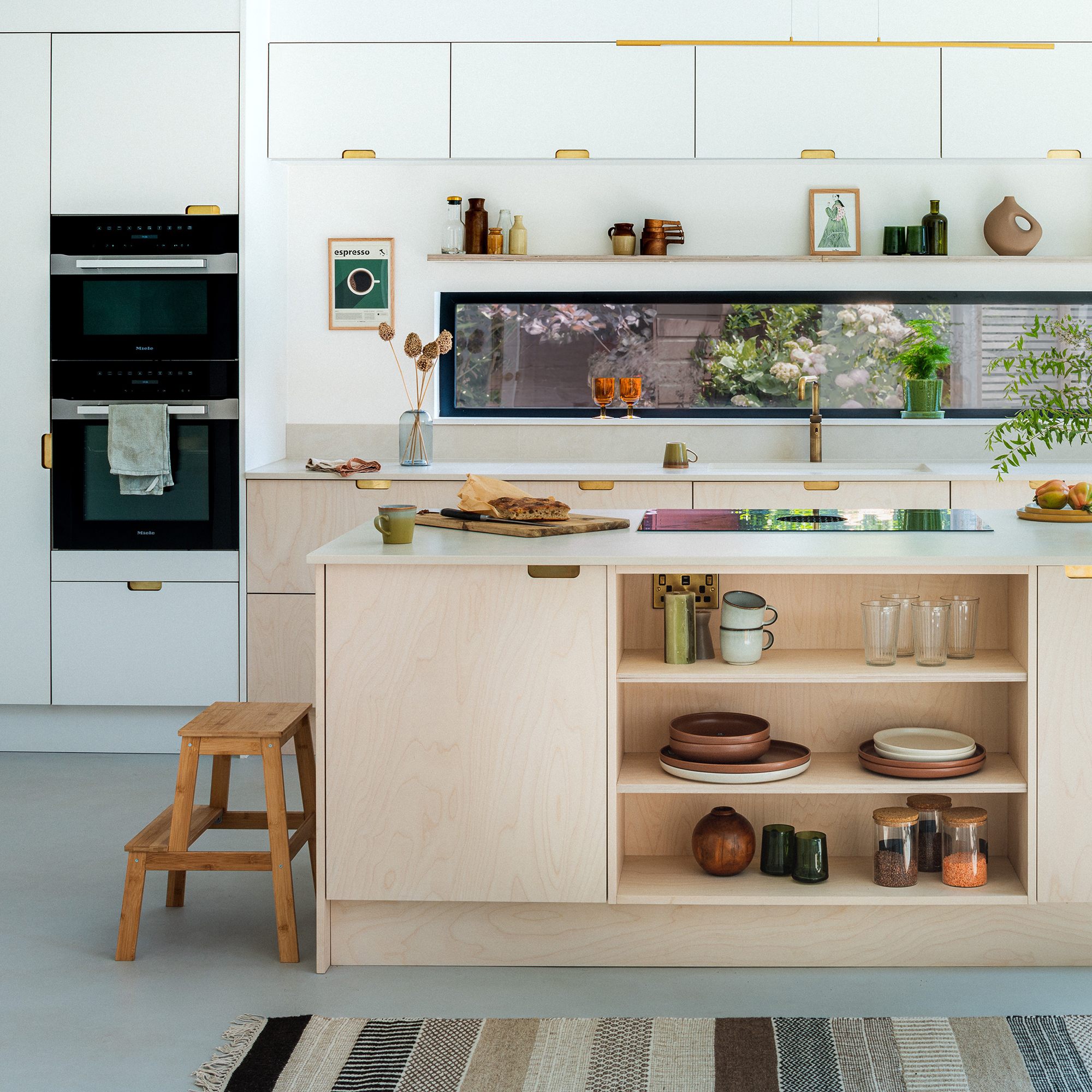 Table wardrobes are the genius kitchen storage solution you didn't know you needed - here's how to create one
Table wardrobes are the genius kitchen storage solution you didn't know you needed - here's how to create one'It’s the tablescaping equivalent of a capsule wardrobe' 'It’s the tablescaping equivalent of a capsule wardrobe'
-
 IKEA's new Oxford Street city store is the start of a huge change to how we shop the Swedish furniture brand
IKEA's new Oxford Street city store is the start of a huge change to how we shop the Swedish furniture brandIs this the return of the high street?
-
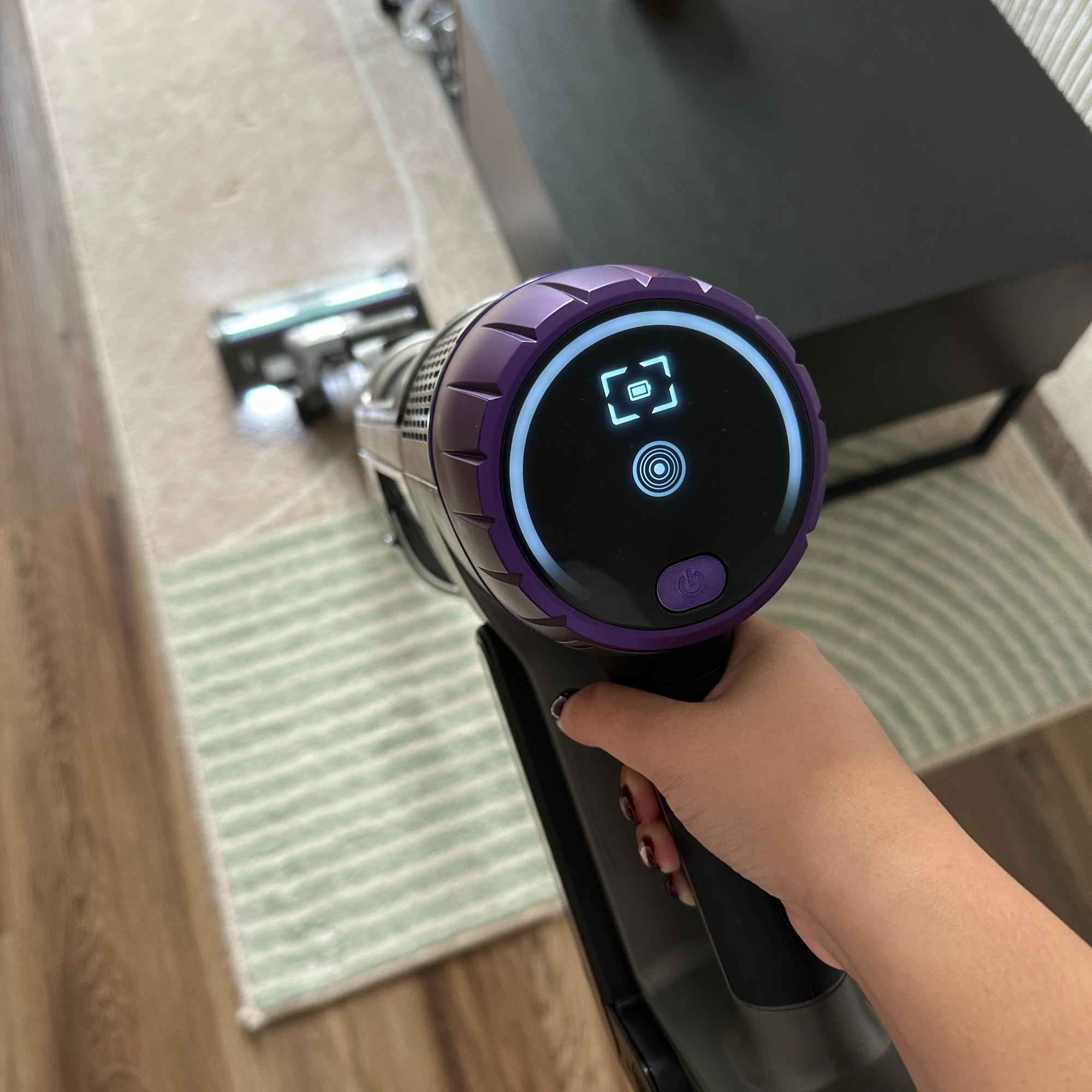 I bought multiple Shark vacuums before becoming an expert vacuum tester — these are the 5 things I wish I knew back then
I bought multiple Shark vacuums before becoming an expert vacuum tester — these are the 5 things I wish I knew back thenI've made the mistakes so you don't have to
-
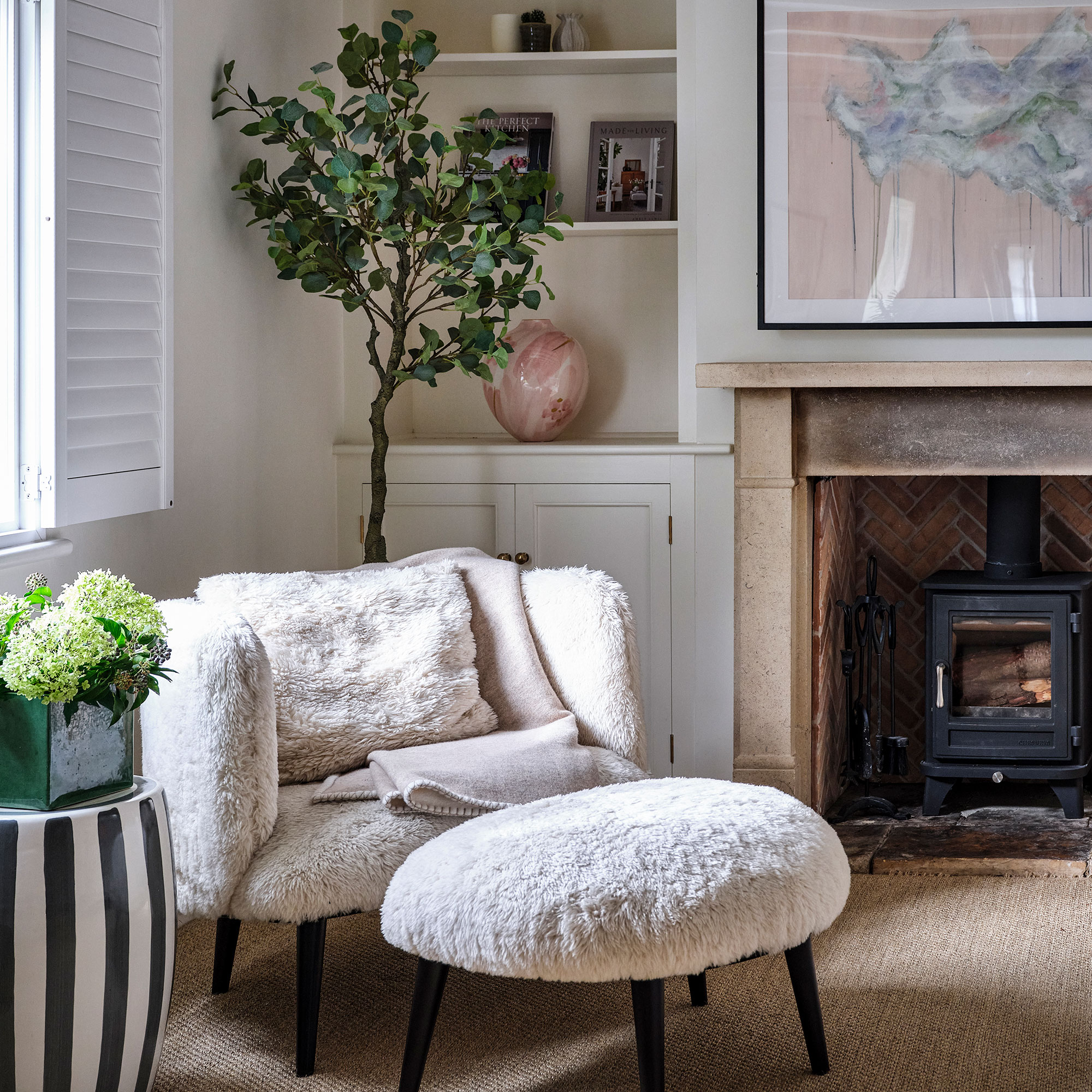 Hygge living room ideas — 6 ways to warm up your home with this Danish concept and cosy aesthetic
Hygge living room ideas — 6 ways to warm up your home with this Danish concept and cosy aestheticHunker down until summer finally arrives with these warming ideas
-
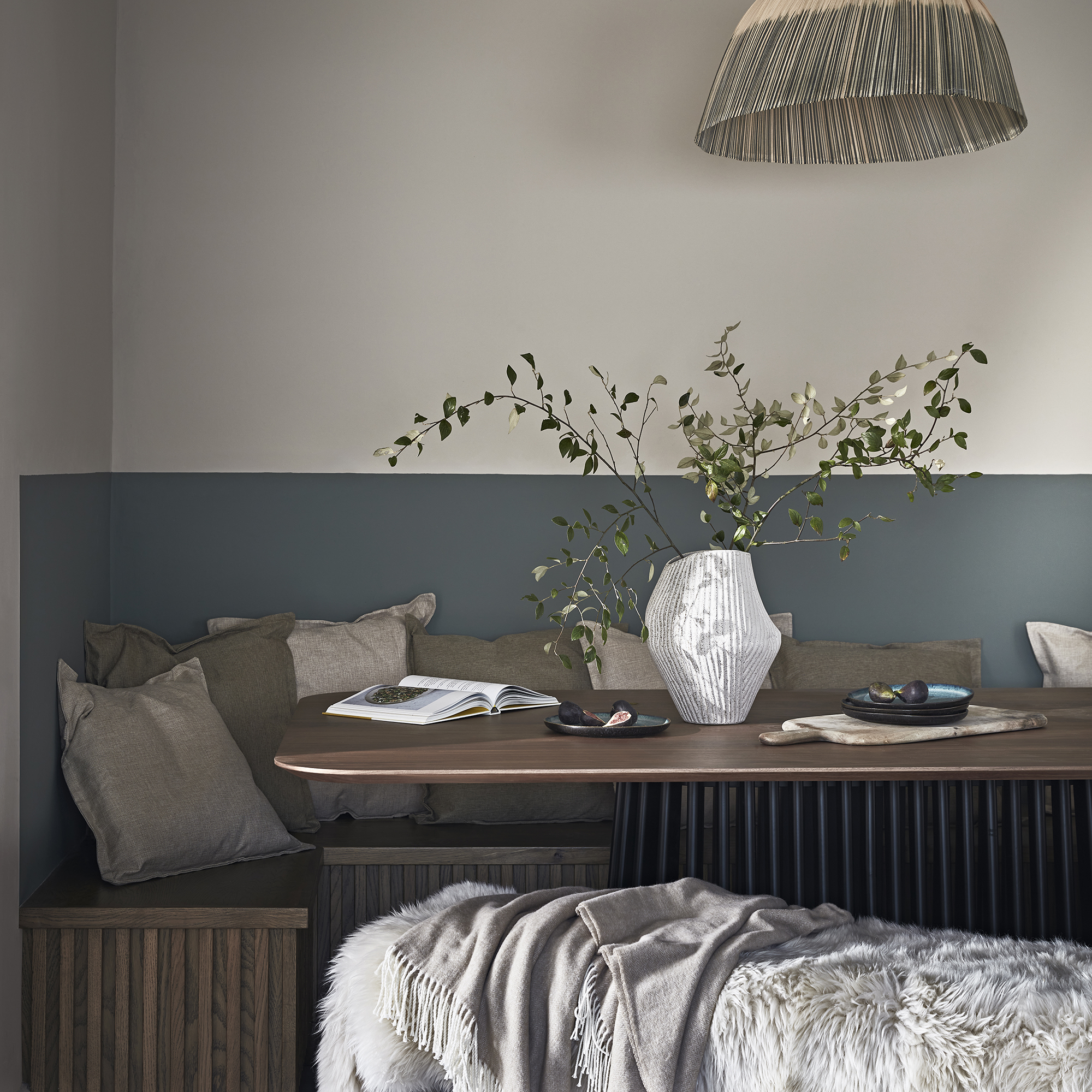
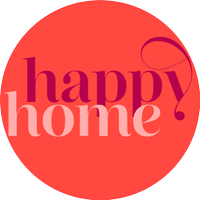 How to create a sensory home – interiors experts reveal 5 easy ways to style your home and soothe your mind
How to create a sensory home – interiors experts reveal 5 easy ways to style your home and soothe your mindYou can turn any space into a sanctuary by following these simple steps
-
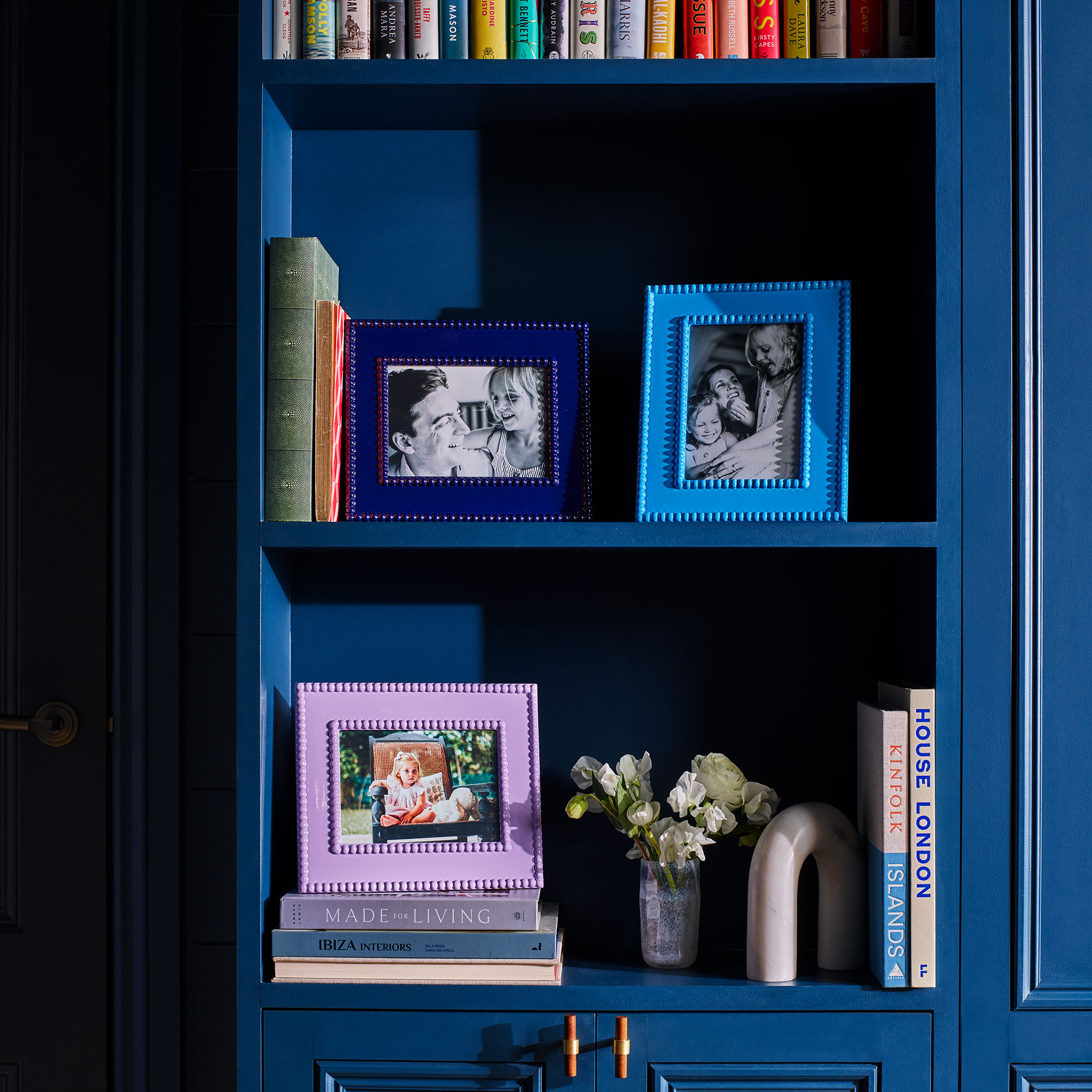
 Can displaying family photos at home make you happier? According to research it can — 5 ways to do it in style
Can displaying family photos at home make you happier? According to research it can — 5 ways to do it in styleHarness the mood-boosting power of looking through old photos by displaying your favourites
-
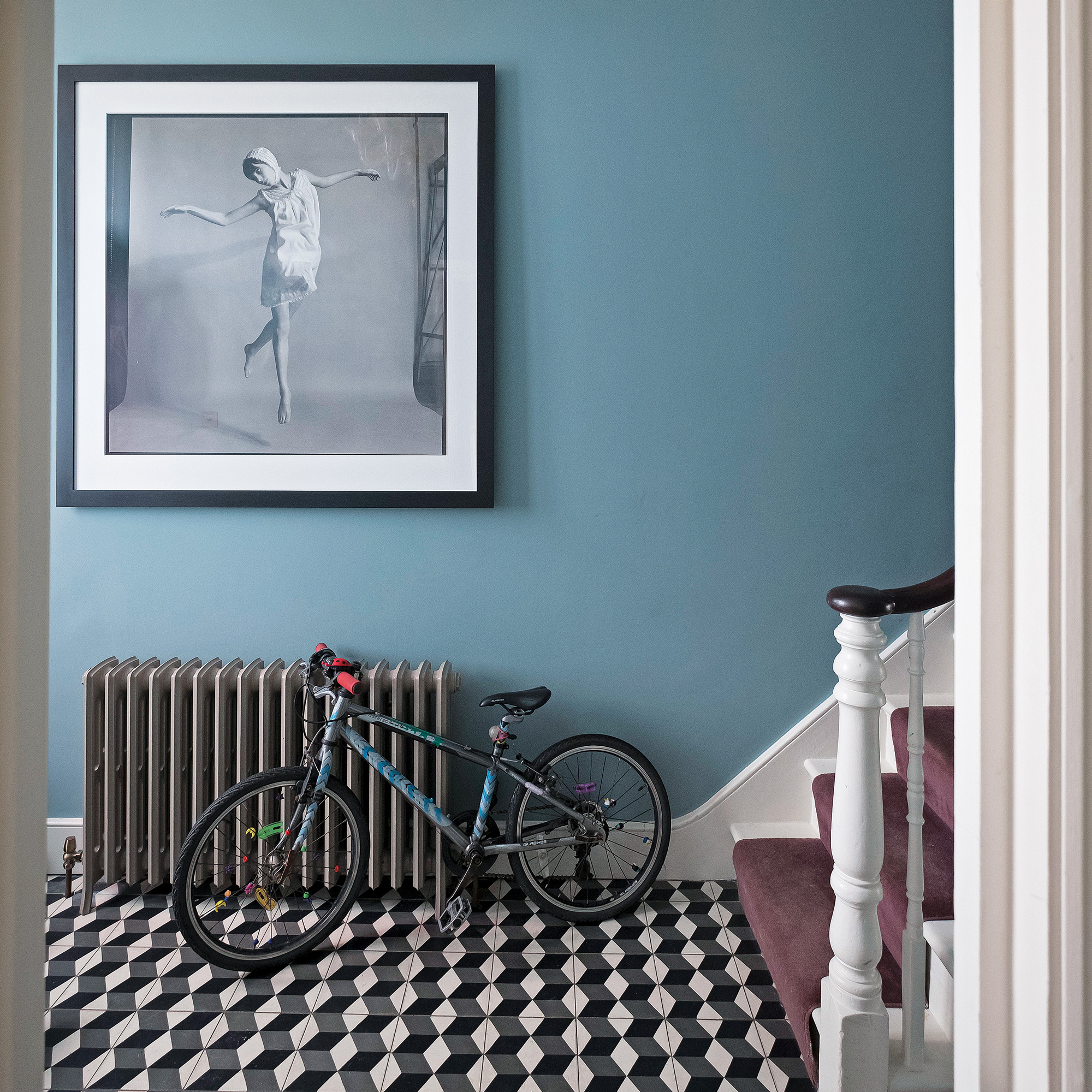 How to make a hallway smell incredible without candles - 7 ways to gently fragrance your entranceway
How to make a hallway smell incredible without candles - 7 ways to gently fragrance your entrancewayGo flame-free to safely scent your entryway
-
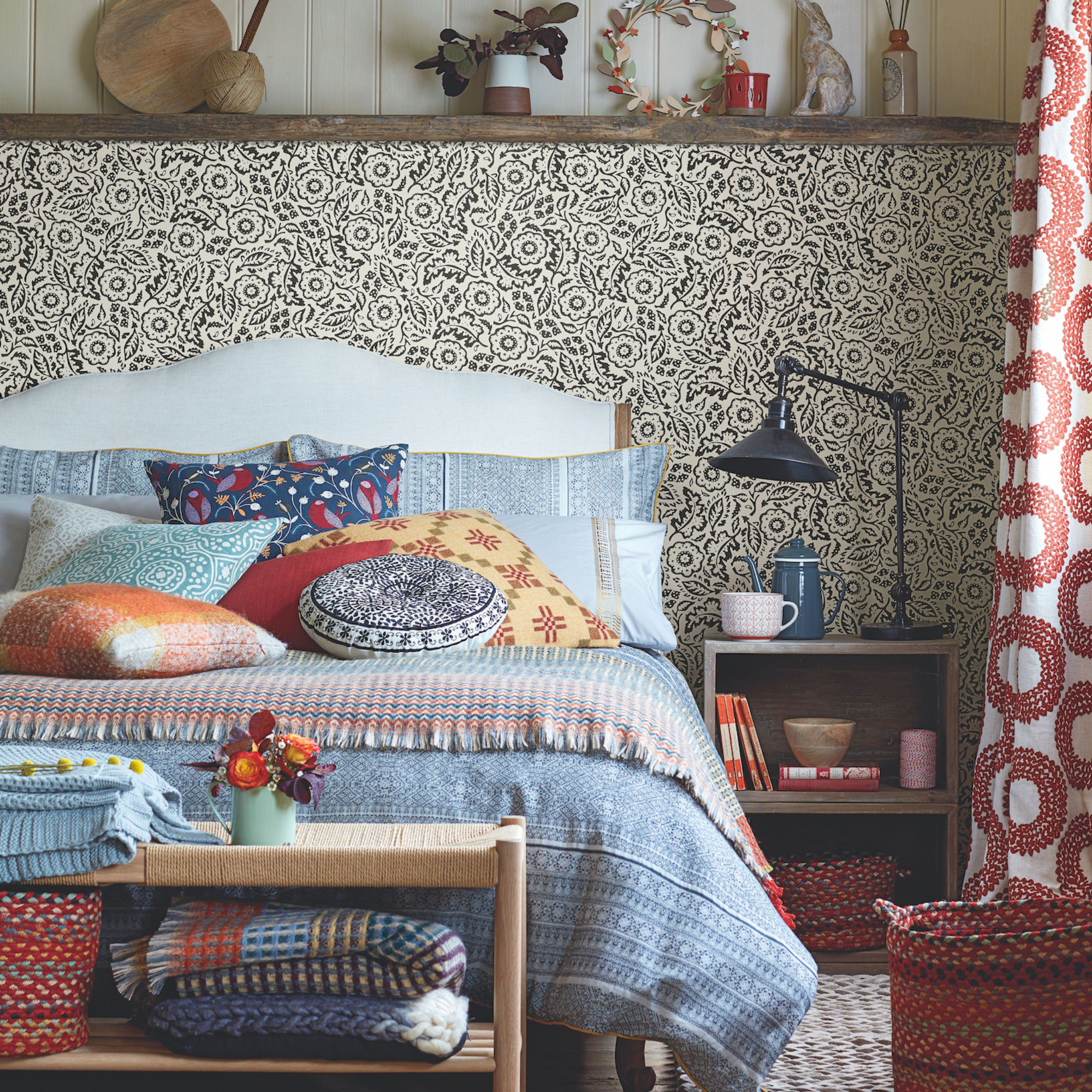 6 ways I brighten my home in January when the Christmas decorations come down, as an interior stylist
6 ways I brighten my home in January when the Christmas decorations come down, as an interior stylistHelp banish the winter gloom with these uplifting ideas
-
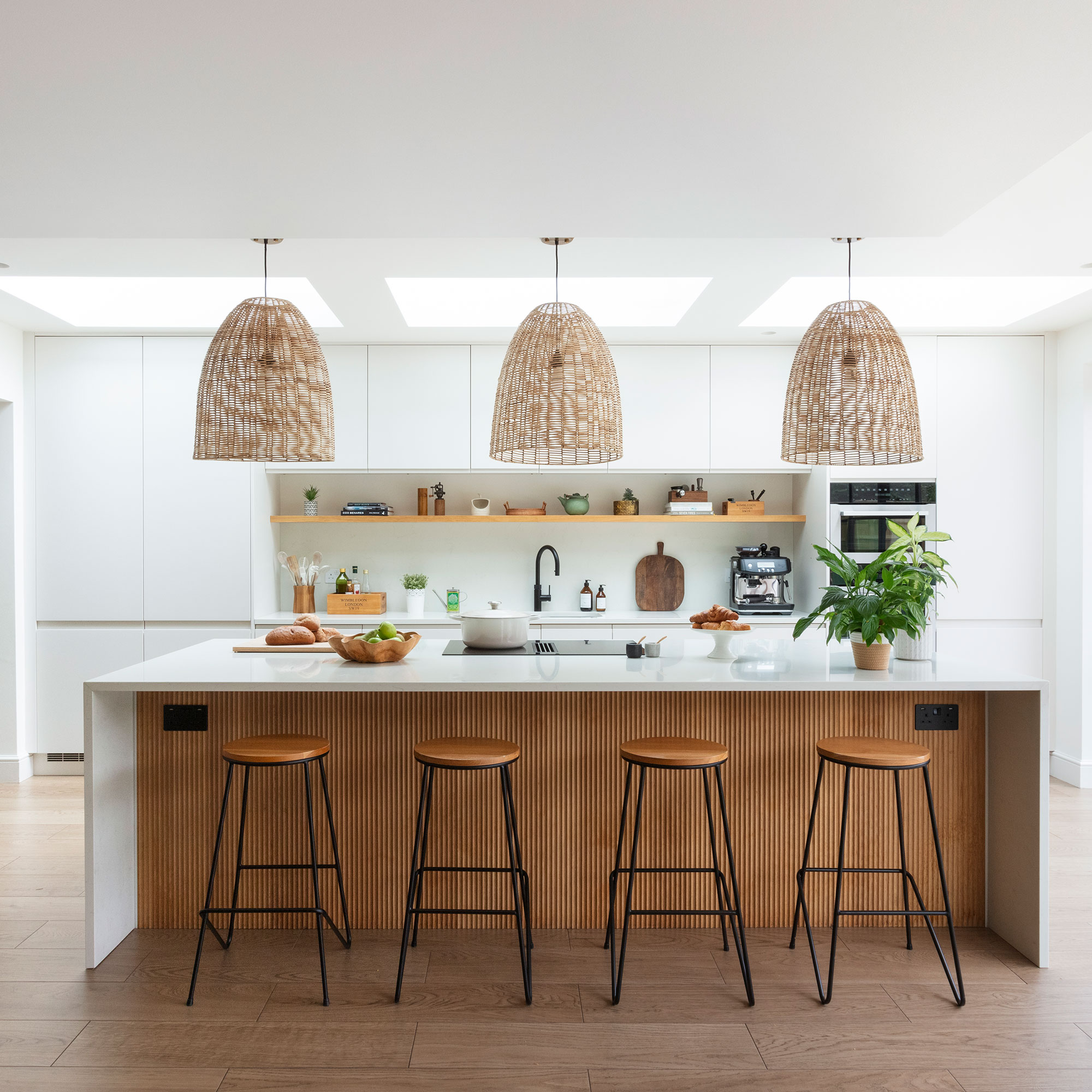 Kitchen hacks to encourage healthy eating habits — 7 ways your kitchen can support healthy living
Kitchen hacks to encourage healthy eating habits — 7 ways your kitchen can support healthy livingMake creating healthy changes easy by following these tips
-
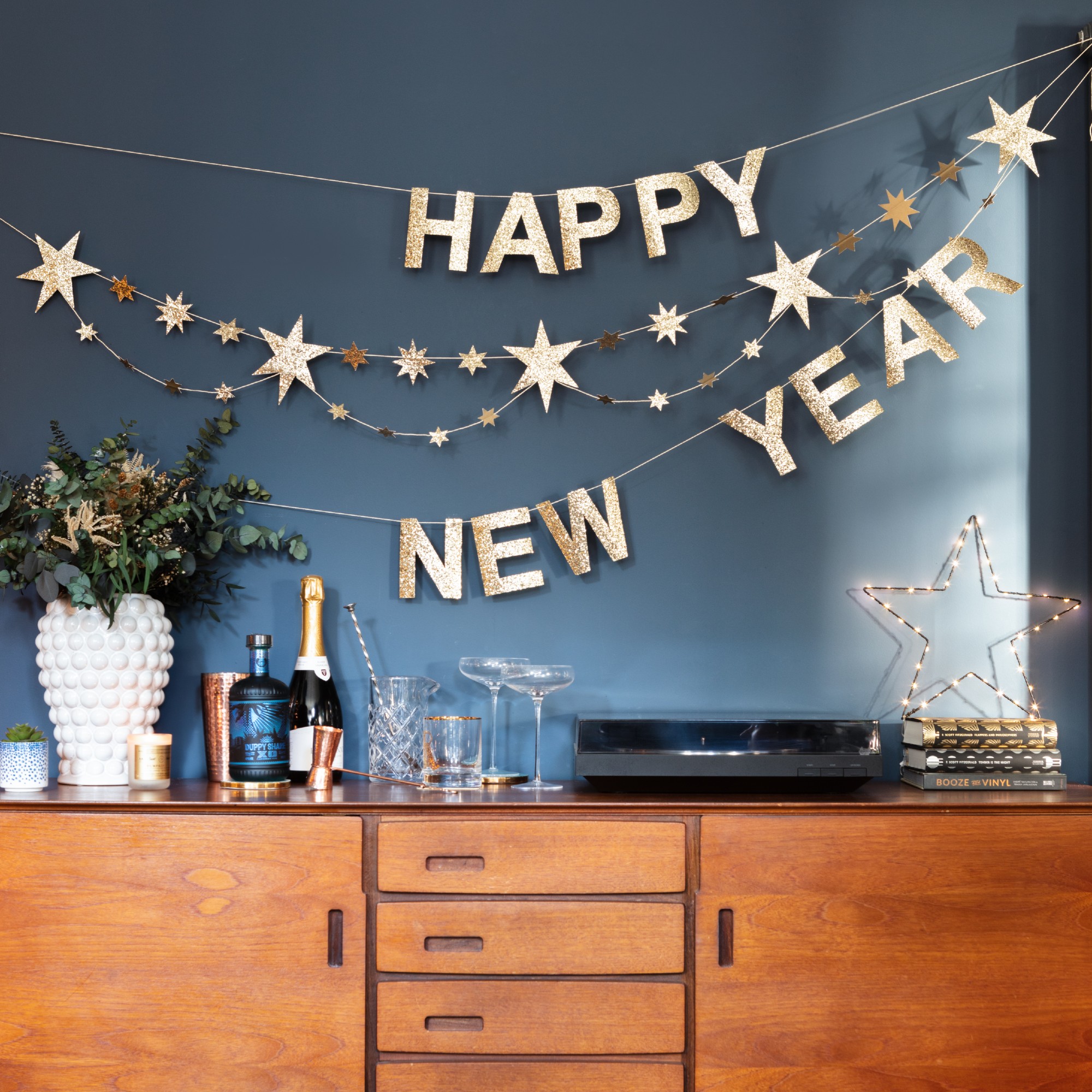 How to reset your home after Christmas to restore a sense of calm
How to reset your home after Christmas to restore a sense of calmFollow these 7 steps to get back to normal at home and beat post-Christmas blues
-
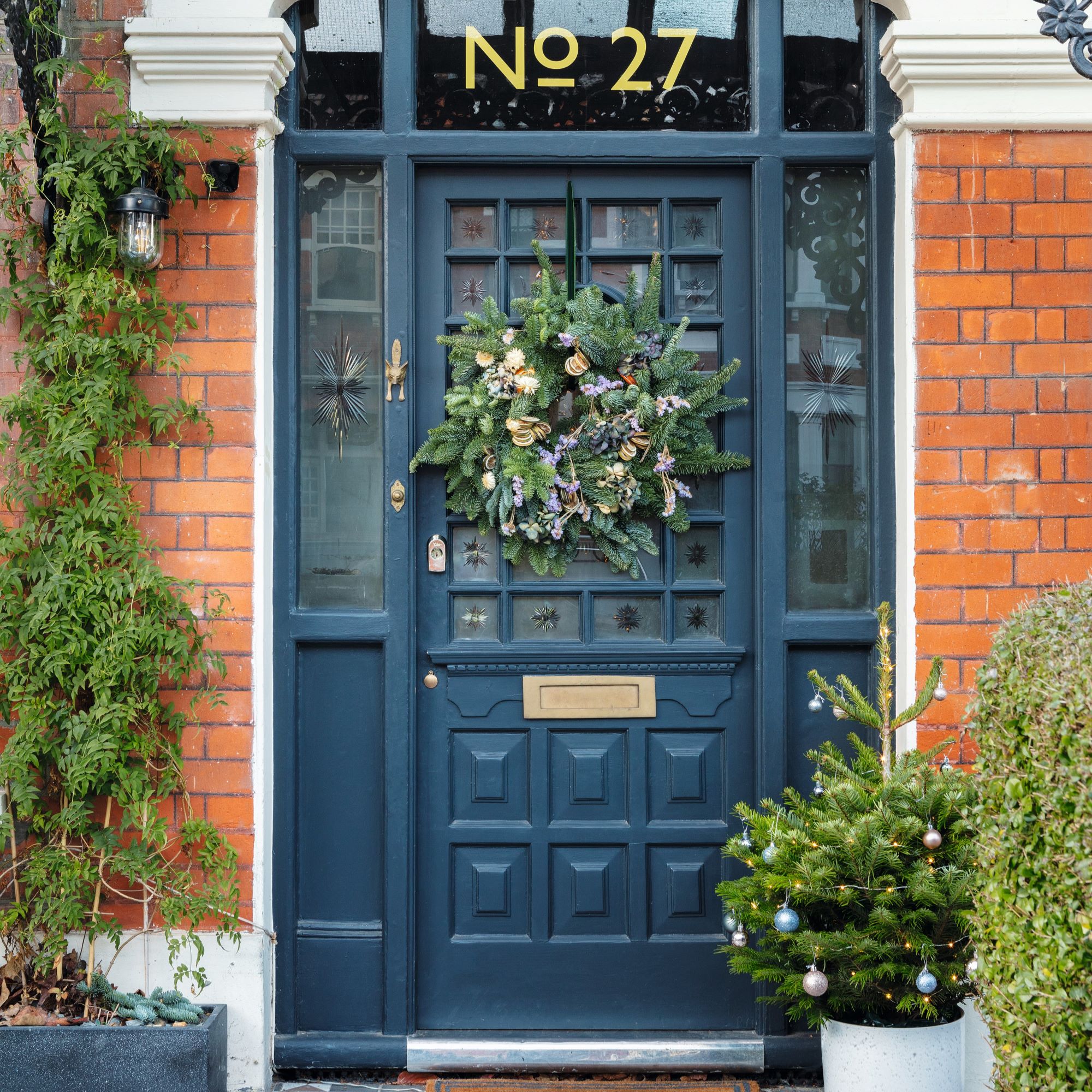 How to make a house look more inviting - 8 ways to quickly boost your house’s appeal in time for Christmas
How to make a house look more inviting - 8 ways to quickly boost your house’s appeal in time for ChristmasMake visitors feel welcome from the second they step foot on your property